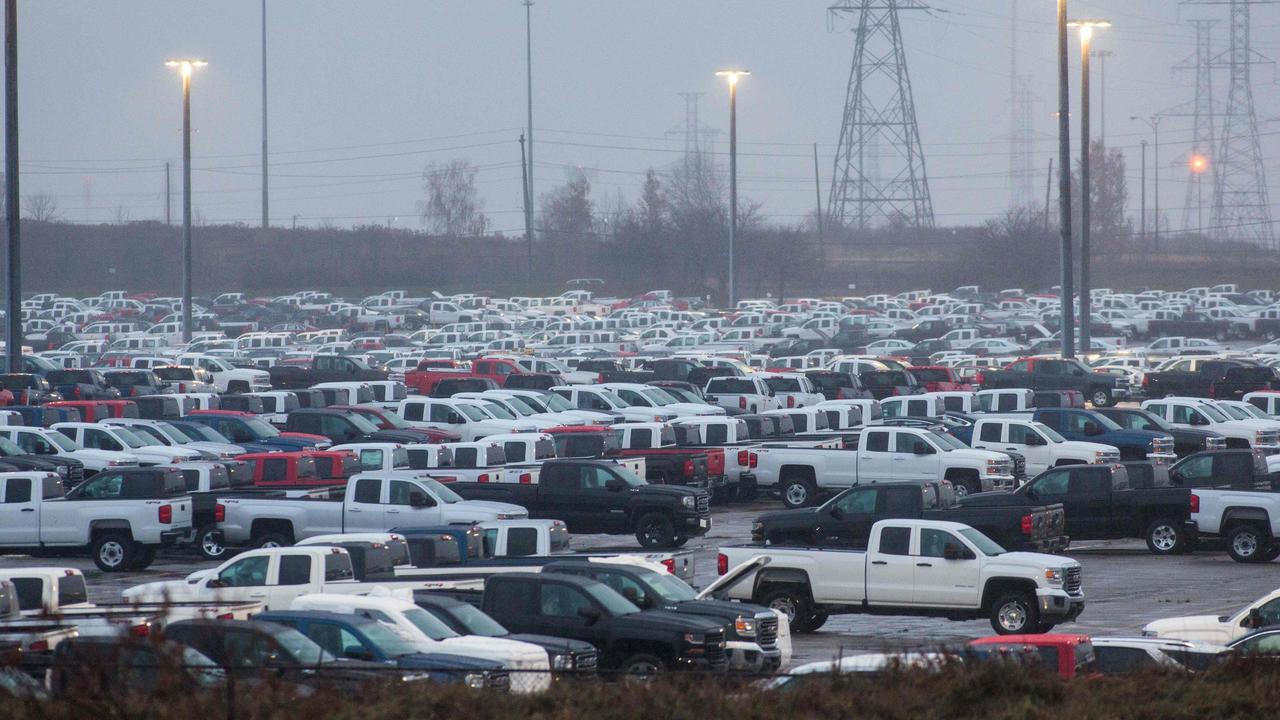Oil plunge biggest since 1991 Gulf War
Oil prices recorded their biggest one-day crash since the first Gulf War in 1991 on Monday.

Oil prices recorded their biggest one-day crash since the first Gulf War in 1991 on Monday, tumbling as traders bet that a clash between oil giants Saudi Arabia and Russia could flood a world already hobbled by the coronavirus outbreak with a glut of crude.
Saudi Arabian state oil giant Aramco’s move over the weekend to cut most of its official selling prices triggered the oil-price crash, with a barrel of Brent crude, the global gauge of prices, closing down 24 per cent at $US34.36. Saudi officials said the kingdom also plans to boost crude output.
An “oil price war unequivocally started this weekend” said Damien Courvalin, head of energy research at Goldman Sachs, noting the price cuts were Saudi Arabia’s biggest according to some measures in at least 20 years.
The tumble puts oil at its lowest level in four years and 50 per cent below a peak hit Jan. 6. US crude futures fell 25 per cent to $US31.13 a barrel, also posting their worst day since 1991 and ending the day at a four-year low.
Both Brent and US crude have slid, with investors around the world scared that the spreading coronavirus epidemic will have prolonged effects on global travel, industrial activity and overall economic growth. S&P Global Platts cites the warmest winter on record in the Northern Hemisphere as also weighing on fuel demand.
With millions of people around the world quarantined by the virus and multiple central banks deploying emergency rate cuts to try to support the global economy, oil has in recent weeks suffered a demand shock.
Global oil demand was down 2.5 million barrels a day in the first quarter of 2020, with China accounting for 1.8 million barrels of that drop, the International Energy Agency said Monday.
“Nobody knows how long it’s going to take for the virus to peak -- China’s trying to get back to business but if they’re going to take oil, it’s going to be to stockpile, and at this price it might be attractive, ” said Sucden Financial’s Robert Montefusco.
The IEA slashed its oil-demand forecasts, saying global oil demand will fall this year for the first time since 2009. The agency downgraded its demand forecast for 2020 to a contraction of 90,000 barrels a day from an estimate of 825,000 barrels a day of growth last month.
“Extraordinary uncertainty [is] clouding the immediate outlook for the global oil market both on the demand and supply sides,” the Paris-based organisation said.
What makes the current situation remarkable is that the oil market is simultaneously contending with both a demand shock, from the slowing economy, and an oversupply shock.
The Saudi-led Organisation of the Petroleum Exporting Countries on Friday failed to agree on a deal with its Russia-dominated allies to deepen oil-production cuts and lend support to oil prices.
The fracturing of that alliance -- and Saudi Arabia’s decision to pump oil at cut-rate prices, is an echo of the 2014 oil-price collapse that rippled through the world economy at the time. It was an attempt, in part, by Riyadh to use its massive supply of easy-to-extract oil to undermine US shale producers, who have come to dominate global oil markets.
“The prognosis for the oil market is even more dire than in November 2014,” said Goldman Sachs’s Mr. Courvalin, since this time the world economy is on a weaker footing because of the coronavirus outbreak. Goldman Sachs slashed its Brent price forecasts for the second and third quarters of 2020 to $US30 a barrel. Some analysts suggest oil could drop below $US20 a barrel.
Aramco’s dramatic price cuts over the weekend have fired the starting gun on a race to the bottom for global oil producers, with drilling and production companies likely to soon be battling to survive.
“Nobody knows how bad this will be, some might go bankrupt and it’s horrible and devastating for people’s books,” said Bjørnar Tonhaugen, head of oil markets at Rystad Energy.
Such a drop in oil prices is likely to blow back on US producers. While US consumers will enjoy lower gasoline prices, the impact on the now massive shale industry could ripple back on industrial production and employment.
“If the Saudis don’t pull back in May or June, others will have to slash their prices too. Where is it curtailed first? Where it’s not economic to drill … and continue production -- that’s US shale,” Mr. Tonhaugen added.
US shale production has continued to increase steadily in recent years. Domestic output rose to a record 13.1 million barrels a day during the week ended Feb. 29, Energy Information Administration data show.
The share prices of international oil companies also plunged, with Saudi Aramco down 5.5 per cent, extending its losses this month to 15 per cent. In Europe, BP PLC, Royal Dutch Shell, and Total SA were all down by more than 16 per cent, having each shed about one-third of their value more so far this year. Exxon Mobil has dropped almost 40 per cent so far in 2020.
The shock also hammered currencies of oil-producing economies, with the Russian ruble, Mexican peso and the Norwegian krone all sliding against the dollar.
Traders will now turn their attention to Saudi Arabia’s colleagues in OPEC and other oil-producing nations to see how aggressively they will slash prices in response to Aramco’s price cut over the weekend.
Russian authorities on Monday pledged to use their $US150 billion sovereign-wealth fund to support the economy and said the nation’s budget can withstand low crude prices for a decade.
Dow Jones Newswires






To join the conversation, please log in. Don't have an account? Register
Join the conversation, you are commenting as Logout